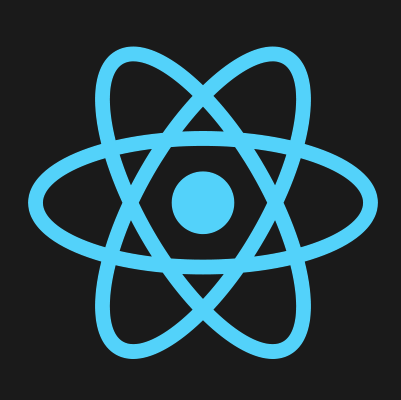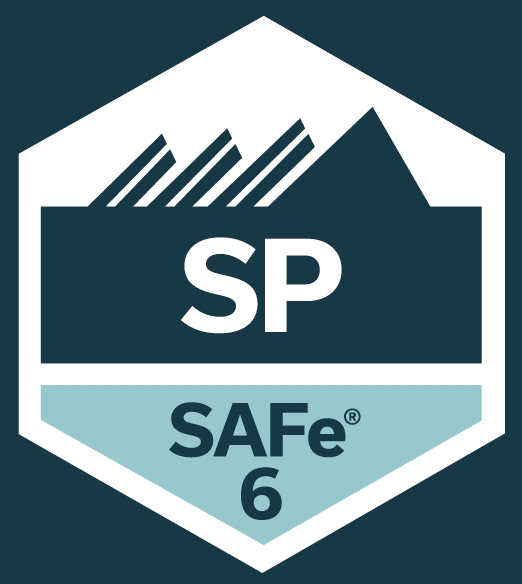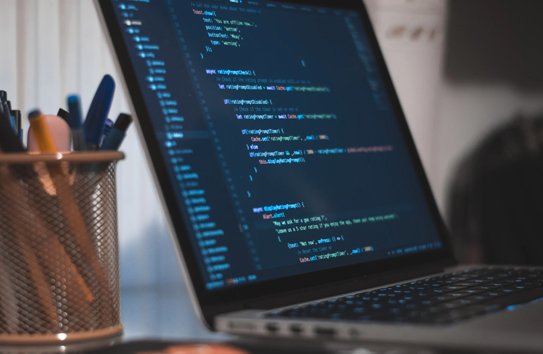FULL STACK SOFTWARE ENGINEER
What is full-stack software engineering anyway? Most sophisticated web applications can be thought of as composed of two parts: the front-end and the backend. The front-end of the stack revolves around what the end-user sees, which is the web page. HTML, CSS, and Javascript are essential technologies used to build and manipulate web pages. React.js is a powerful library for working on the front-end. The backend of the stack is where data gets stored, managed, and analyzed. Our tools-of-the-trade for backend development are Python and SQL.
BEYOND TECH
Code Platoon’s Beyond Tech curriculum teaches students the interpersonal skills necessary to become a world-class software engineer. Beyond Tech helps bridge the gap between their military experience and the civilian workplace. Students strengthen their self-knowledge through a personality assessment and develop a customized approach through teamwork, resolution, inclusion, and negotiation exercises.
Team Building
From asking for help when stuck to pair programming and taking direction, working on a team is vitally important to a software engineer’s life. This session helps our students understand the techniques modern technology teams use to build camaraderie and transfer knowledge between team members.
Mental Toughness
At one point or another, every engineer deals with the feeling of being stuck in a problem. Feelings of “imposter syndrome” are commonplace, and students will inevitably question why they are even learning code in the first place. This session will normalize the feelings of “imposter syndrome,” give students an excellent vocabulary to describe their feelings, and move them from a fixed learning mindset to a growth learning mindset.
Diversity & Inclusion
Today’s workplace represents a rich melting pot of people from many different races, religions, sexual orientations, genders, etc. As we enter this workplace, we have to understand what makes us diverse. The Diversity and Inclusion workshops provide a better understanding of the lexicon that surrounds diversity. Students will be guided through a series of exercises and discussions to know themselves better and define identity. By increasing our diversity lexicon, students will become effective advocates for creating richly diverse and inclusive workplaces.
Simply understanding the vocabulary to describe diversity in the modern workplace is only half of the equation to having a diverse and inclusive workplace. The Diversity and Inclusion sessions equip students with preventative and reactive measures for practicing inclusivity. Students will learn various ally skills to use with peers and methods to combat insensitivity at the office.
Personal Finance
Often, military personnel have little to no personal finance training, resulting in a slew of financial issues in the civilian world. Going from a military salary to a technology salary is a significant increase and can either lead to more financial insecurity or put students on a track to financial success. In this session, we will talk through the importance of budgeting, getting out of debt, and how to set up an ecosystem for healthy finances.
Salary Negotiation
Salary negotiations are a vital part of every job search – too often, thousands of dollars are left on the table just because candidates don’t negotiate. This session will help students find the confidence and verbiage necessary to negotiate at the offer table through a series of role-playing situational exercises.
Job Search
After finishing a coding Bootcamp, students are often surprised to find that searching for a full-time position is often more complex than the coding Bootcamp itself. From endless cold emails to countless networking events, searching for a job is exhausting. This session will help students put job searching in context, help them get on a written plan, and overcome their fears of interviews.
CAREER PREP
To best prepare Code Platoon’s students for the highly competitive software market, we have created a rich career prep curriculum. Many coding bootcamps truncate their web development curriculum and tack on an extra week to lightly cover the critical topic of career prep. Code Platoon devotes 50% more instructional time to the subject and weaves career prep throughout our curriculum. Our students come out of Code Platoon with an industry-ready resume, a professional LinkedIn profile, and 100+ hours of behavioral/technical interview practice.
Ongoing Sessions
The daily class schedule includes time each day for students to work on their LinkedIn profiles, prepare answers for behavioral interviews, and work through technical whiteboarding interview questions. Also, students are taught 1-2 technical interview questions each week by senior engineers in the industry.
Formal Sessions
Code Platoon is fortunate enough to have a number of volunteers from the recruiting and technology industry come in and teach our students. Our Career Services Team has developed a number of sessions to best prepare students below:
Session 1: Building an online presence
This session reinforces the building of a strong online presence via Github, Twitter, and LinkedIn. Students are taught how to fully utilize Github by finding interesting projects, following active contributors, and giving “stars” to reputable code bases. During the session, students will be taught where to look for beginner-friendly open source software and build their online presence.
Session 2: Resume Writing Workshop
This workshop teaches students to carefully document the work they are doing, write notes on their specific contributions, and record what challenges they are facing while their learning new material. They are then tasked with starting to think through / document their own narrative – how they got to Code Platoon, their experience in the military, etc.
Sessions 3-5: Individual Resume Writing Coaching
In the last few weeks of each cohort, students meet with volunteer recruiters vetted by the Career Services Team up to three times to review and work on their resume.
Session 6: Final Interviews (Behavioral)
During this session, professional recruiters will work with students on how to best present themselves in an interview and how to break down behavioral questions.
Session 7: Final Interviews (Technical)
During this session, a senior developer from the tech community will teach students how to approach and break down technical questions. This session will cover both answering whiteboarding questions and how to speak to their general technical knowledge.
Session 8: Mock Interview Day
The career curriculum concludes with a mock interview day given with industry professionals. Technical and non-technical interviewers will interview students and provide feedback to students. Each student will have five 45-minute interviews with a mix of technical and behavioral questions.
IMMERSIVE PROGRAM SCHEDULE
The Full-stack Software Engineering Immersive program is a 15-week Coding Bootcamp for Veterans and military spouses. Classes are Monday through Friday and feature a mix of lectures, presentations, and hands-on coding time. All students, in-person or remote, must be available for the duration of the program. Students will collaborate with their cohort throughout the program on projects and coding challenges.
The entire Code Platoon curriculum and program details are available in the Academic Catalog.
Course Overview
Code Platoon provides students the skills to land a job as a software engineer. Students learn how to develop web development applications in the Python and Javascript programming languages. The frameworks used will be Django and ReactJS.
A typical day in the Immersive program begins with one to two hours of lectures covering various topics. The remaining class hours feature structured workshop time to complete assignments that reinforce the morning lectures’ teachings. The Immersive program is comprised of three learning modules outlined below. Students are required to complete a significant amount of homework and programming projects in addition to the classroom time.
Module 1 (Weeks 1-4, 160 hours) : Computer science / programming fundamentals
Module 1 covers computer science basics and programming fundamentals, including algorithm scripting, version control, data types, and structures (variables, booleans, integers, strings, objects, operators, loops, etc.). The curriculum also covers object-oriented programming, inheritance, polymorphism, database persistence, SQL, and web application data modeling. The languages to be covered in this module are Python, Javascript, and SQL. This module allows students to build a foundation to think through problems, build the skills necessary to troubleshoot issues, and prepare for first-round technical interviews.
Module 2 (Weeks 5-6, 80 hours): The World Wide Web
This module includes the foundations of how to create content on the Internet and webpages. It covers HTML/CSS/Javascript as it pertains to a webpage. It also covers data transmission across the Internet and HTTP/HTTPS protocols. Students will write their own HTTP server code by the end of this module. This module is essential because the world of software engineering and web development calls for engineers to understand how their code will impact the greater web ecosystem.
Module 3 (Weeks 7-14, 320 hours): Creating Applications
This module teaches students how to create web applications, including database design and integration, web routing, and the Model View Controller framework through Python frameworks such as Django. Students learn authentication, testing, and API integration. They will learn to integrate the ReactJS framework on top of their Django application. Module 3 is where students learn the skills that employers will expect them to have on the first day of the job, and they will see how all the skills learned in the first two modules will come together to build an application.
Pre-Requisite Homework
Before starting the program, students will receive a pre-work package that they will need to complete before classes begin. The pre-work should take between 60 and 100 hours to complete and coves computing basics and some “tools of the trade.”
Training Hours
Students typically work 10 to 14 hours a day during the program, 5 to 7 days a week. This intensity level is necessary to cover enough ground to prepare you for a career in software engineering.
Weekly Calendar
EVENING AND WEEKEND PROGRAM SCHEDULE
The Full-stack Software Engineering Evening and Weekend program covers the same curriculum as the Immersive program over 28 weeks. Classes are conducted remotely three evenings each week and all day on Saturday and feature a mix of lectures, presentations, and hands-on coding time. All students must be available for the duration of the program. Students will collaborate with their cohort throughout the program on projects and coding challenges.

 Javascript
Javascript PostgreSQL
PostgreSQL Object Relational Mapping (ORM)
Object Relational Mapping (ORM) Django for Python
Django for Python React.js
React.js SAFe Practitioner (SP)
SAFe Practitioner (SP)




